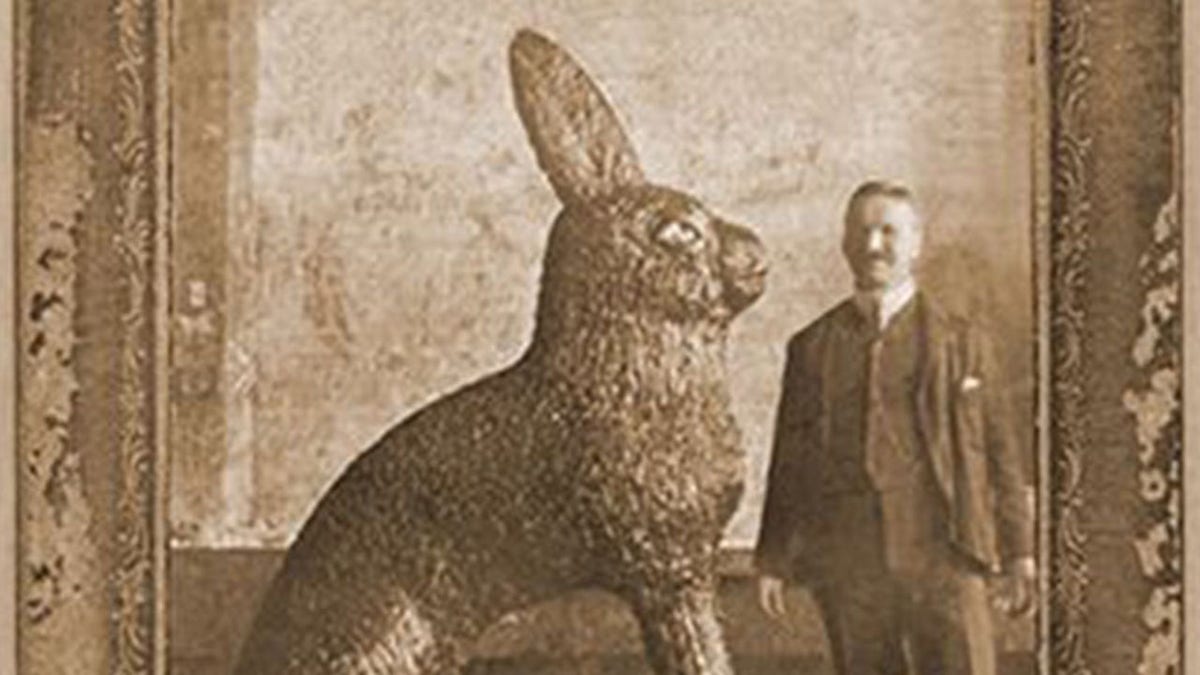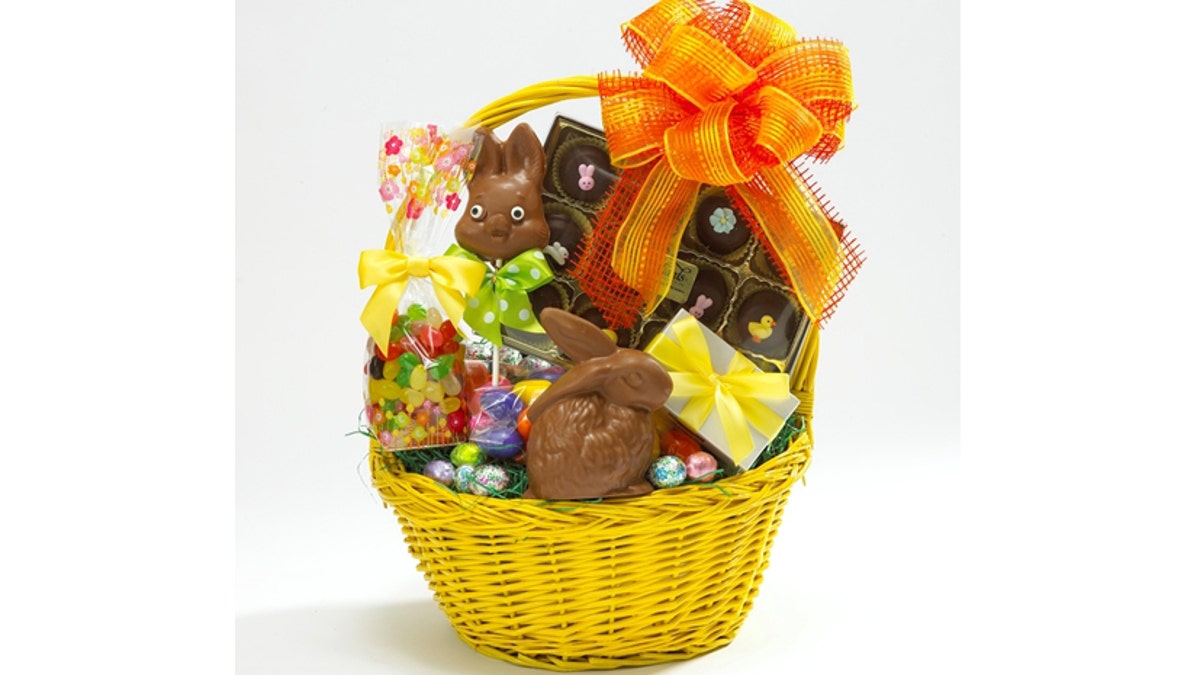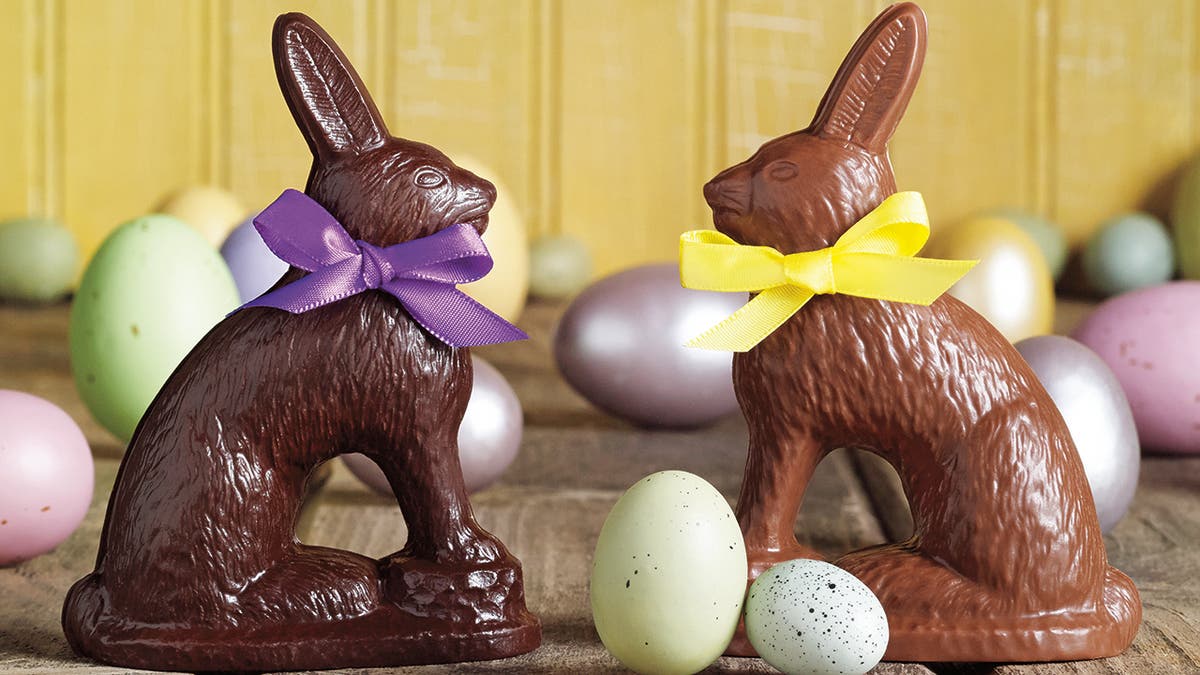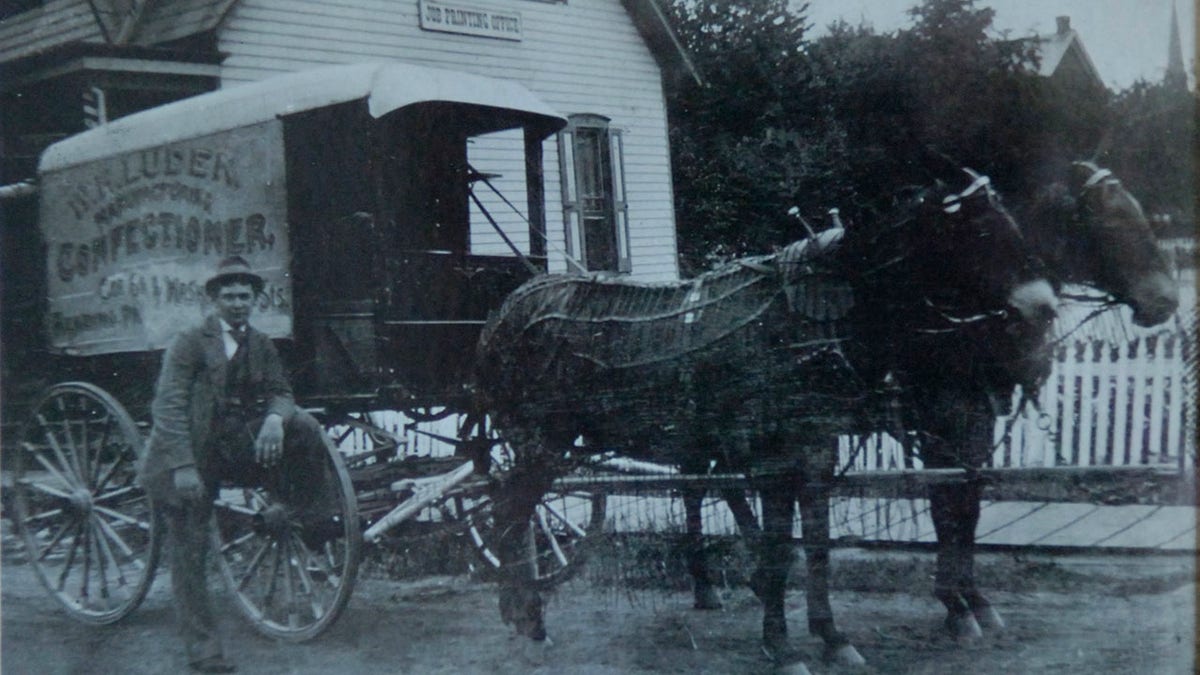Chocolate Easter bunnies are a sweet example of European tradition re-imagined by American ingenuity and capitalist creativity.
Credit first-generation German-American Robert Lincoln Strohecker, known in confectioner’s lore as the “Father of the Chocolate Easter Bunny.”
The source of Strohecker’s legend was a massive 5-foot-tall (or perhaps even taller) solid chocolate rabbit he displayed outside Pennsylvania retailers in 1890 to popularize smaller versions of his new Easter sweets born of German tradition.
JESUS CHRIST’S RESURRECTION MEANS WE ARE ALL ON THE ‘ROAD TO EMMAUS,’ SAYS TEXAS PASTOR
Strohecker, whose middle name was Lincoln, was born in Harrisburg, Pennsylvania in January 1864. President Abraham Lincoln delivered the Gettysburg Address, the site of the battle just 35 miles away, two months before Strohecker was born.
“Candy of the sort that you might recognize today really took off … after the Civil War, after the price of sugar [had] fallen,” Samira Kawash, “the candy professor” and Rutgers University scholar told Smithsonian Magazine in a 2010 interview.

Robert L. Strohecker was a salesman for W.H. Luden Confectioner in 1890 when he had a giant 5-foot-tall solid chocolate Easter bunny made to promote the company’s new line of smaller Easter bunnies. One chocolate industry expert estimates the giant bunny weighed 400 to 500 pounds and would cost $10,000 to make today. (Courtesy Harbor Sweets)
The confection business exploded, and the German-American community of Pennsylvania proved to be at the center of it.
Strohecker’s chocolate Easter bunny sales gimmick was an instant sensation. Americans purchase about 90 million Easter bunnies each year, according to WalletHub.
SHOOFLY PIE WAS BORN IN THE USA: ENTHUSIASTS BAKE PI DAY CLAIM OF ‘MORE AMERICAN THAN’ APPLE PRODUCTS
The chocolate Easter bunny business he inspired, however, is being crippled by inflation here in 2024.
Cocoa futures have doubled just since the start of 2024, according to industry data, after soaring 60% in 2023.

An Easter basket with chocolate bunnies from Hilliard’s Chocolates, an artisan confectioner from Easton, Massachusetts. (Courtesy HIlliard’s Chocolates)
Rising costs, including on energy and transportation, are being met by lower supplies.
The International Cocoa Organization reported last month that cocoa production is down 11% this year, citing poor weather conditions in West Africa, which produces two-thirds of the world’s crop.
MEET THE AMERICAN WHO MADE EASTER SWEETER, LEGENDARY CHOCOLATE BUNNY SALESMAN ROBERT LINCOLN STROHECKER
Here in the United States, the National Retail Federation expects spending on chocolate Easter eggs and bunnies to drop from $3.3 billion in 2023 to $3.1 billion in 2024 — a potential 6% decrease.
Big Easter Bunny is already feeling the pinch.

Harbor Sweets in Salem, Mass. offers the Robert L. Strohecker edition of its chocolate Easter bunnies, modeled upon the giant 5-foot-tall solid chocolate Easter bunny created by Robert L. Strohecker in 1890. Harbor Sweets was founded in 1973 by Ben Strohecker, grandson of the chocolate Easter bunny patriarch. (Courtesy Harbor Sweets Handmade Chocolates)
Chocolate giant Hershey witnessed a 6.6% decline in sales volume in the fourth quarter of 2023 and announced job cuts in February.
The public’s insatiable appetite for chocolate Easter bunnies makes it a “sort of bullet proof” business, however, according to one local American confectioner.
The prospect of long-term rising costs and dwindling supplies is “scary.”
“Whatever is going on in the world, people don’t give up shopping for chocolate,” said Maegan Dec, president of Hilliard’s Chocolates, a 100-year-old, family-owned business in Easton, Massachusetts.
She said business this year remains unaffected, citing loyal customers seeking artisan chocolates. But the prospect of long-term rising costs and dwindling supplies is “scary.”

A copy photo of a Luden’s wagon taken on Jan. 29, 2007. Original photo from Frederick Edenharter of Shillington, Pennsylvania, grandson of the founder of Luden’s Inc. William H. Luden. Robert Strohecker, who sold Luden products throughout the region and popularized the chocolate Easter bunny in America, traveled in a similar wagon. The man in the photo is not identified. (Krissy Krummenacker/MediaNews Group/Reading Eagle via Getty Images)
It’s possible Strohecker’s legacy is too big to fail.
Strohecker was a salesman for W.H. Luden Confectioner of Reading when he hauled his giant chocolate Easter bunny — one estimate puts its weight at 500 pounds — around Pennsylvania by horse-drawn wagon in 1890.
CLICK HERE TO SIGN UP FOR OUR LIFESTYLE NEWSLETTER
Luden’s is known today as one of the world’s preeminent cough-drop companies.
Milton Hershey established his first confectioner, Lancaster Caramel Co., just four years later and only 30 miles away.

Trays of chocolate rabbits sit in the factory area at Jacques Torres Chocolate in New York, on Tuesday, April 7, 2009. (Daniel Acker/Bloomberg via Getty Images)
Richard M. Palmer grew up in Reading, the same city where Strohecker established Pennsylvania Easter bunny culture.
He returned from service in World War II and, in 1948, established R.H. Palmer Candy in his hometown.
Palmer Candy today claims to make 1 billion bunnies each year.
For more Lifestyle articles, visit www.foxnews.com/lifestyle.


